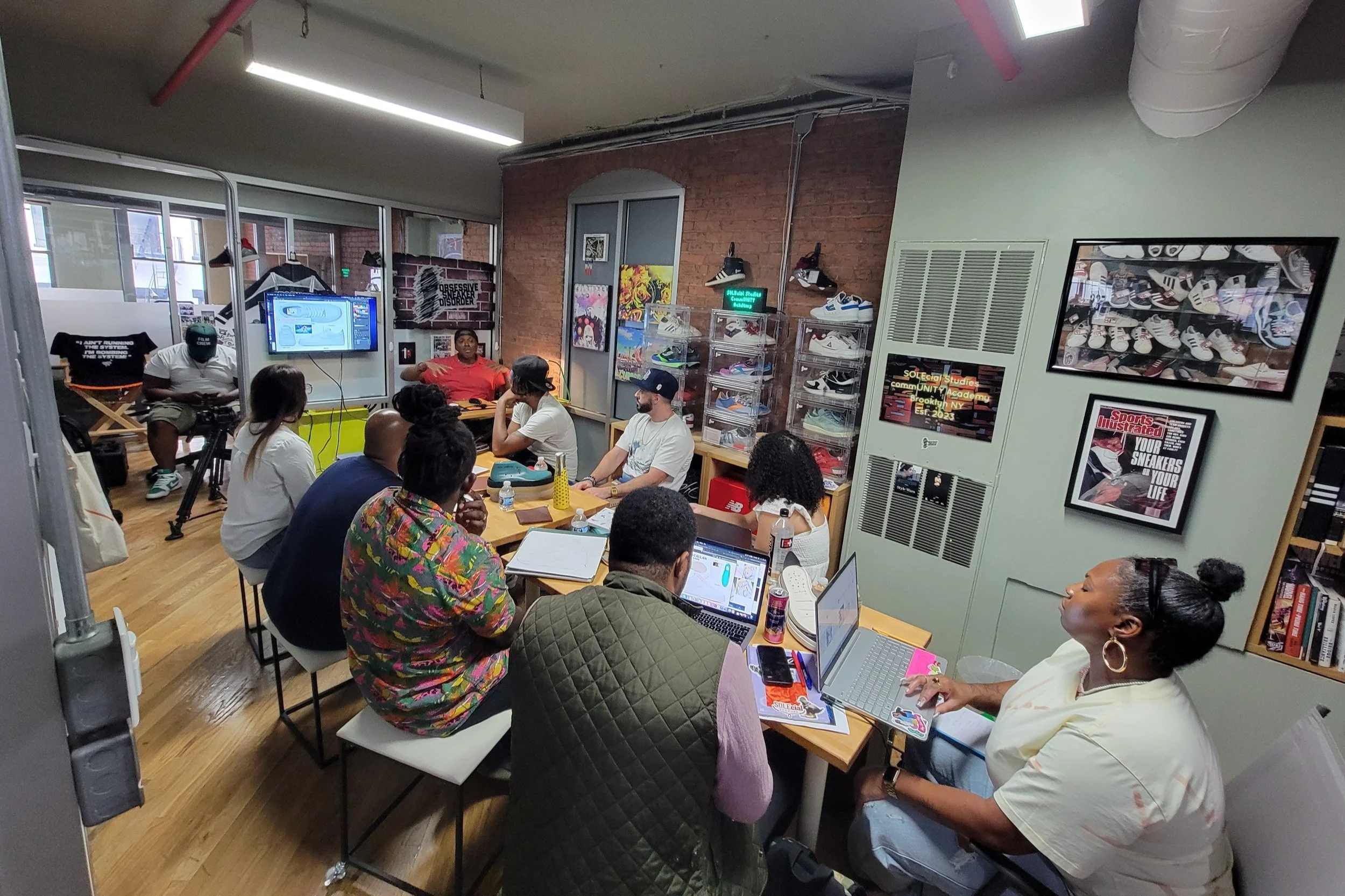Watch Your Step: 3 things the Sneaker Industry Needs To Evolve
The SOLEcial Studies sneaker industry education program was started in June 2011 after Co-founder and sneaker obsessive DeJongh "Dee" Wells (my Sole Brother) and I began obtaining consultant contracts with sneaker companies. This was due to our creation of the very first sneaker talk show in the industry, "Obsessive Sneaker Disorder," in 2007.
The success of our podcast did not reap rewards monetarily like many of the same do today, but we were afforded opportunities that would be long-lasting and lead to the establishment of a good portion of the work we're recognized for today. Our business and culture program has global partnerships with over 150 people working in the sneaker industry in some capacity. We've taught the program to students representing over 200 countries.
Our journey to where we are today is due to our love of sneakers putting us in a position to be seen as experts in the industry. The conversations were different from what we expected. We learned a few things that sadly, are still true today. Here are a few of those things;
Many people who don't work in the footwear industry and don't pay attention to sneakers are unaware of an actual "industry" existing right in front of them. One of the main reasons for that is a severe lack of education about it. The first exposure to any industry comes from "schools." It seems that sneakers have never reached that level of relevance or importance to those in academic circles until very recently. Therefore, the number of people who understand sneakers as a viable career is limited.
A majority of the executives and major decision makers on a high level at the major sneaker brands neglect (and deny) the influence of the street and the various subcultures that move the needle of trends (sales) in their favor. Even if a brand is having success in traditional areas, oftentimes things that happen with their products being used in situations they didn't intend have a very positive ripple effect.
Women get the worst end of the sneaker business from a professional and consumer standpoint. The number of women working professionally in the sneaker industry in all eligible positions, from CEOs all the way down, shows that the brands care very little about women as key decision-makers and creatives in the sneaker industry.
When it comes to what the retail shelves look like when a woman wants a fresh pair of sneakers, things have only slightly improved from the "shrink it and pink it" approach brands have pushed forward with for years. To this point, the improvement in a women's only experience at sneaker retail has been given only half-baked attempts.
These three points, which we've learned and shared through our professional journey in the sneaker industry, are not exclusive to the United States either. Our experiences have allowed us to have a global perspective that we never let go of when trying to achieve our mission.
For a very long time, people assumed that it was only in the inner cities of the United States that people cared about sneakers in an obsessive way. That myth has long been dispelled, yet the actual business side of sneakers lives in a vacuum of narrow-minded and regressive thoughts and processes, particularly in the executive suites, design rooms, manufacturing plants and marketing areas of the business. Why is it so hard to find women and people of color who can surely represent the next generation of professionals who will do things differently, BETTER?!
Technology seems to be the great equalizer that scares the old guard immensely, casting aside things like factory minimums and wholesale to retail business models. The very notion of someone possessing the potential to design a sneaker on Monday, and have a sample in their hands later in the week (thanks to 3D printing) is the type of revolution in the sneaker industry that should be supported by any companies that "get it" and at the same time "value" the current evolutionary phase we're in.
Our work for over a decade in the sneaker industry is done with the mission summed up in these three words, "appreciate, educate, elevate". We want people to appreciate sneaker culture, become educated about its artistic, cultural and societal significance and then do what they can (to any degree) to elevate sneaker culture. It's a role we've taken on since 2011, but we also ask this of the thousands of students who have taken part in our programs over the years.
There are so many stories that have yet to be told by people from places all over the globe. Much like Hip-Hop culture, through which sneaker culture gets its DNA, the many diverse stories and approaches should not be denied. They CAN'T be denied. They WON'T be denied. Almost 100 billion global dollars later, how can they be?!
The sneaker industry is lovely to work in for many reasons. But the journey comes with this little warning: " Watch your step!"

